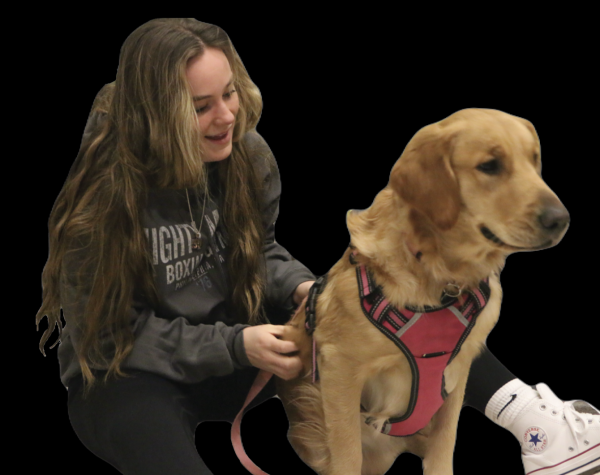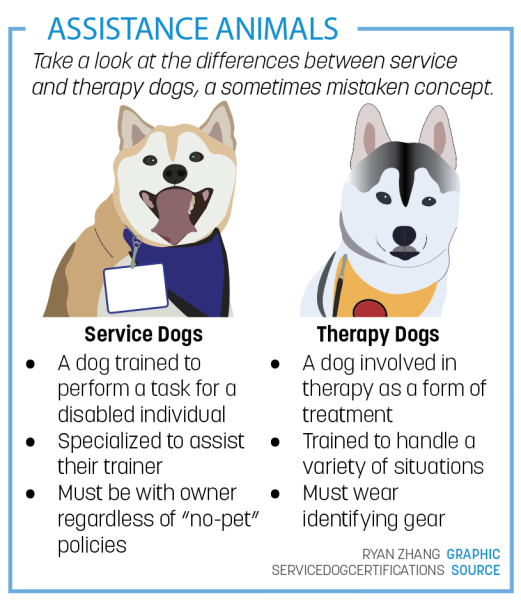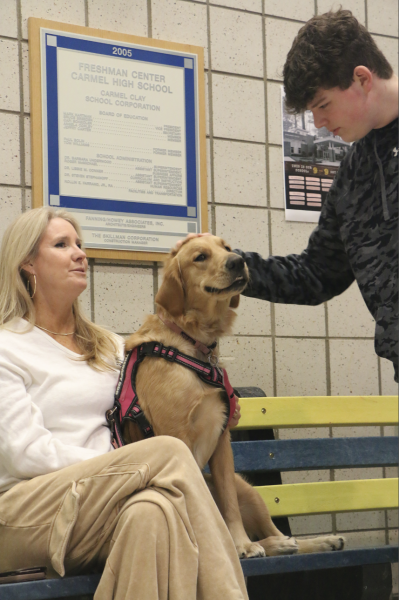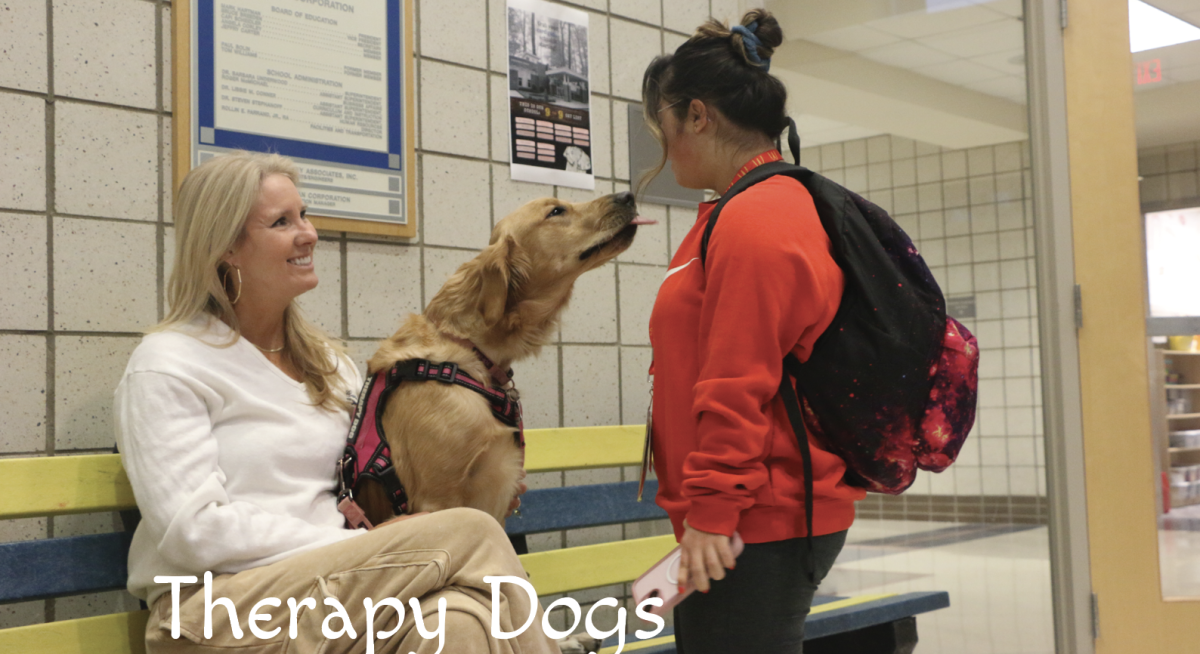Carmel Clay Schools continues to expand the service dog program, as multiple therapy dogs will be present during mental health awareness week, in addition to the one permanent therapy dog at CHS, Rosie. Sophomore Matthan Lemon said he is happy with CHS’ decision to bring in therapy dogs.
 “Animals are definitely a good way to deal with your mental health and I think it’s great we have (therapy dogs) here in Carmel,” Lemon said.
“Animals are definitely a good way to deal with your mental health and I think it’s great we have (therapy dogs) here in Carmel,” Lemon said.
Lemon said he has experience with animals reducing his own anxiety. Lemon said his cat helps him calm down and rewind.
“(My cat) is always there for me when I just need a silent buddy to cuddle with, and it really just relaxes me sometimes to just lay down with him and take a nap,” Lemon said. “Also the nap just feels a lot less boring when I have a cat curled up in my lap.”
Grayson Miller, sophomore and dog-owner, said he agrees with Lemon, and his dog helps him with his own stress and anxiety.

“(My dog) is just very comforting,” Miller said.
Miller said he thinks the school bringing in therapy dogs is a great way to help with students’ mental health.
“I think (bringing in therapy dogs) is good to help students who are especially stressed,” Miller said. “And dogs are cute so that’s a plus.”
Assistant principal Amy Skeens-Benton said there is a scientific reason for why people like Miller and Lemon feel comforted by animals.
“The release of certain hormones and chemicals that calm people and relieve anxiety (is created by) the petting, touching, and being around animals,” Skeens-Benton said.
Skeens-Benton also said she can see the positive impacts therapy dogs have when students interact with Rosie.
“(Animals) just generally improve mood,” Skeens-Benton said. “I see it everyday when students and staff walk in and see Rosie and they just light up and are happy to see her. I also have some students with special needs and Rosie really helps them regulate and de-escalate their emotions.”
Lemon said his aunt helps train therapy dogs, and training can be tough for the animals, but is ultimately rewarding.
“A lot of the training is just with clickers and treats and repetition and putting (the dogs) through scenarios so when they go to their proper owners, they will already be used to the situation (they have been trained for) and how to handle it,” Lemon said.
 Lemon said he is happy his family gets to help train animals which are important for people with special needs, and just generally gets to make others happy through service animals.
Lemon said he is happy his family gets to help train animals which are important for people with special needs, and just generally gets to make others happy through service animals.
“The therapy animals help with kids who may be non-verbal or have special needs,” Lemon said. “The animals can sense anxiety, which helps them know when to give their owners a lot of special attention.”
While therapy animals help students with special needs, Skeens-Benton said she has seen students of all different backgrounds and need-levels benefit from therapy dogs at Carmel.
“Students will say things like ‘oh my gosh this made my day’ or ‘I love having a dog here’,” Skeens-Benton said. So (those reactions) are their own testament to (how well therapy dogs work).”


